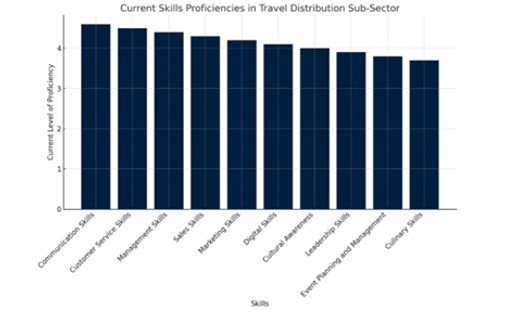According to a new skills audit report from the SADC Business Council, SADC tourism operators need to urgently embrace digital transformation if the region wants to remain competitive.
The widespread adoption of digital technologies and online platforms has become integral to tourism operations worldwide. However, many SADC tourism enterprises still lack the capabilities to take full advantage.
The SADC skills audit reveals noticeable gaps in digital literacy, customer service, communication and management skills. In particular, smaller businesses are struggling, with many lacking basic digital skills. This threatens the growth potential and sustainability of enterprises in the tourism and hospitality space.



The results also show that small to medium-sized enterprises (SMEs), forming the backbone of the region’s tourism, are most in need of management and digital skills. Larger enterprises also face challenges in filling managerial roles, indicating a widespread issue across the sector.

"Tourism globally is undergoing a digital revolution, yet many of our SADC enterprises risk getting left behind," says Tshifhiwa Tshivhengwa, Interim Chairperson of the SADC Business Council Tourism Alliance.
"We need concerted efforts, from both public and private sectors, to rapidly upskill employees if SADC hopes to remain competitive."
Besides basic digital skills, the report calls for increasing work-integrated learning opportunities, developing niche skills credentials, subsidising training access for SMEs, cultivating industry-academia partnerships, and investing in upskilling trainers.
These actions aim to bridge the existing skills gap and prepare the workforce for the digital age.
According to Tshivhengwa, the SADC Business Council Tourism Alliance is committed to driving these changes, working collaboratively with governments, training institutions, and industry leaders. This initiative is not just about enhancing skills but also about unlocking the full potential of tourism in the SADC region, contributing significantly to economic growth and job creation.
"We stand at a pivotal moment," added Tshivhengwa. "By equipping our workforce with the right digital skills, we can transform challenges into opportunities, ensuring a prosperous future for tourism in the SADC region."























